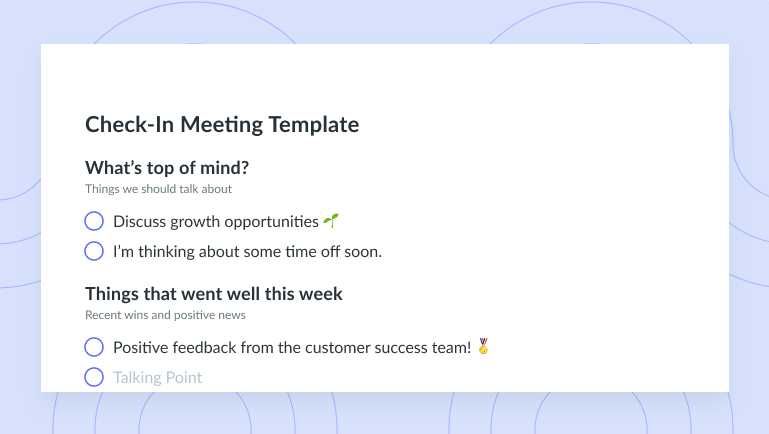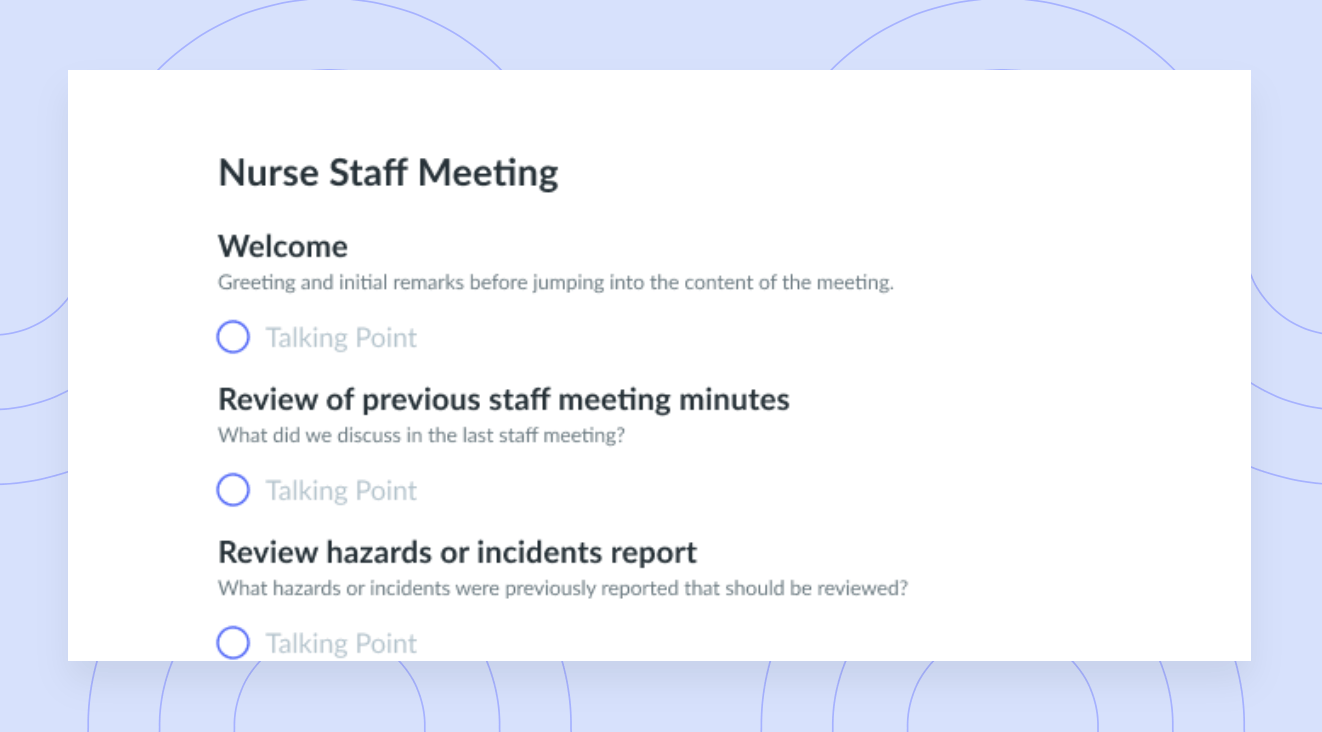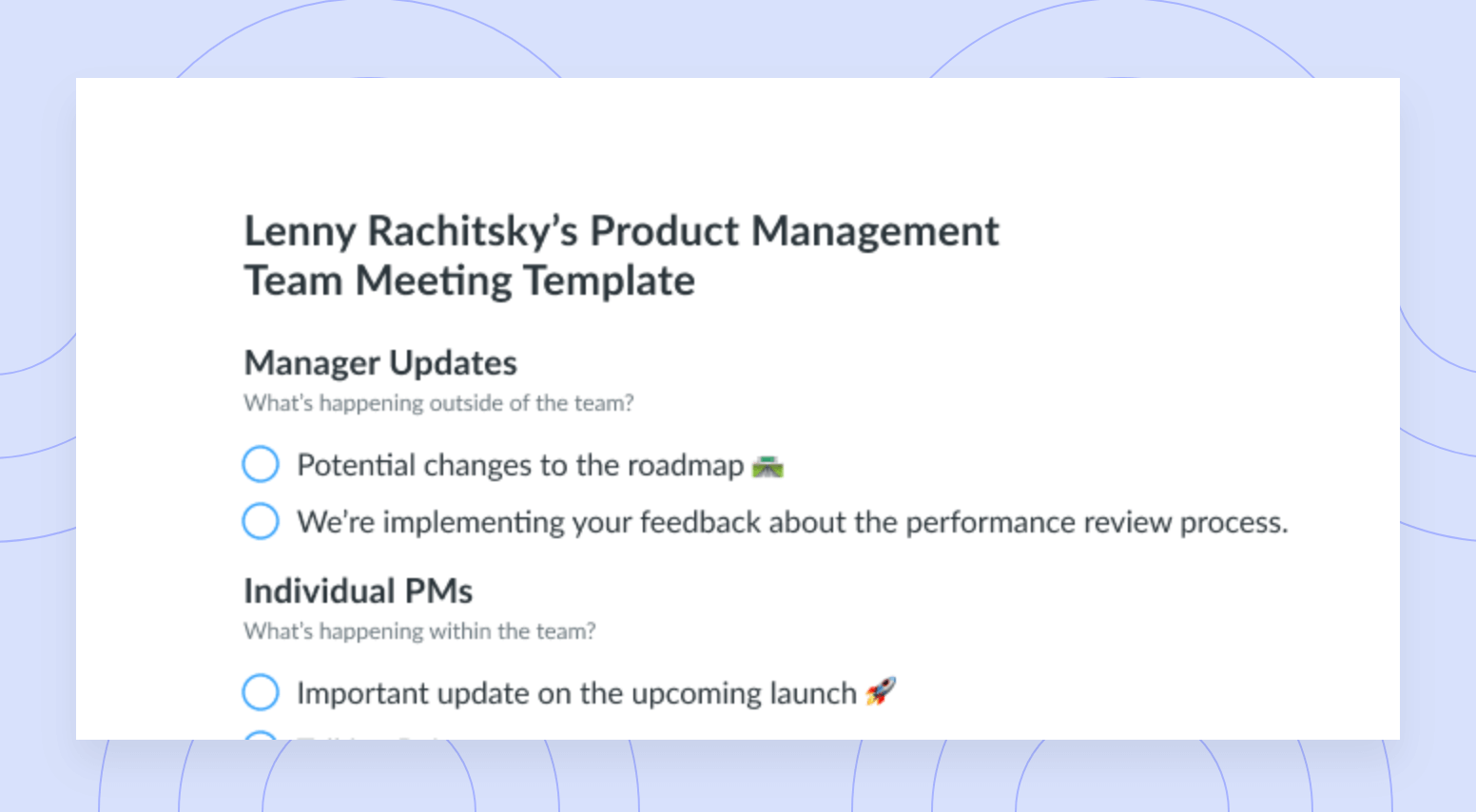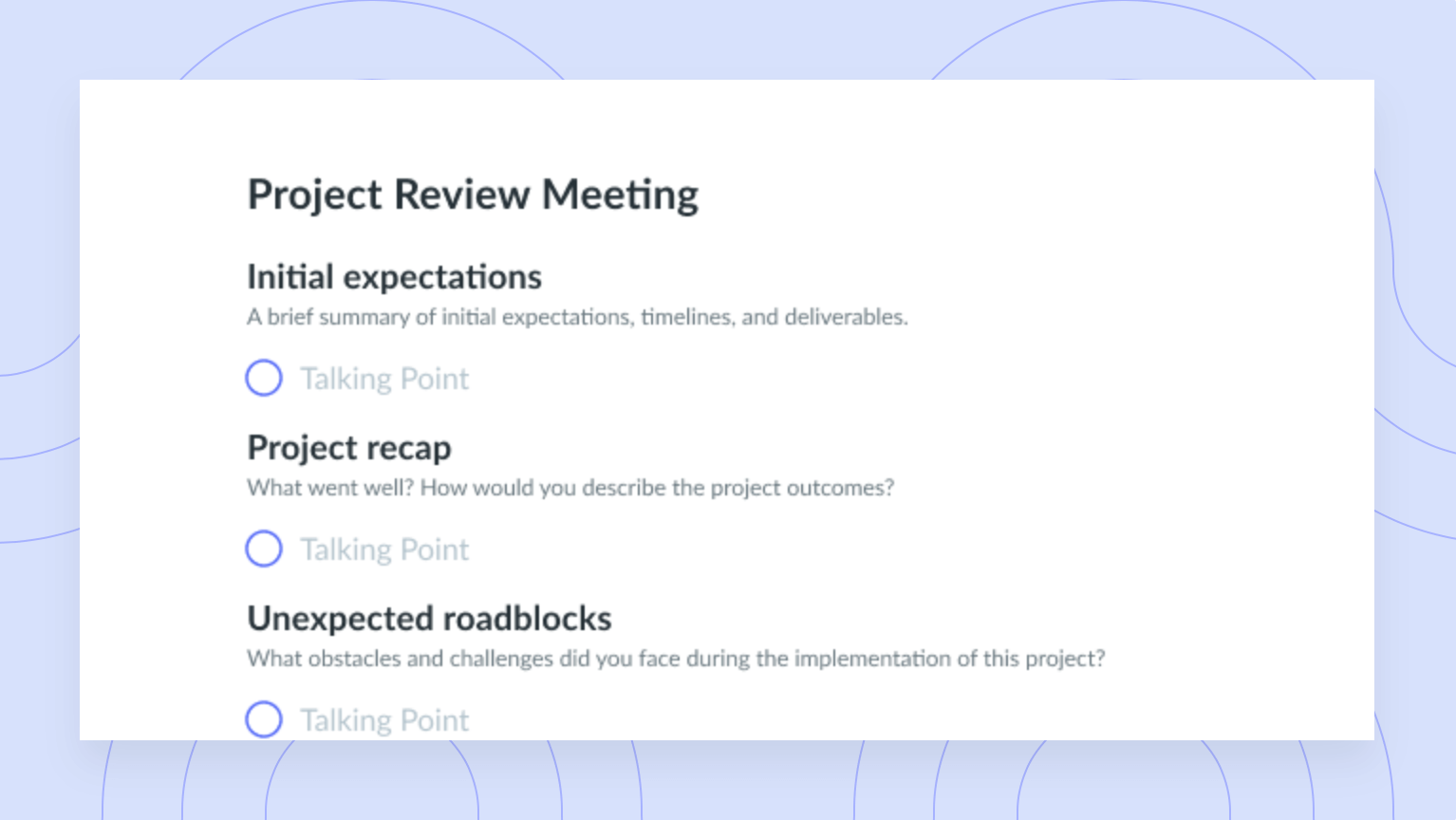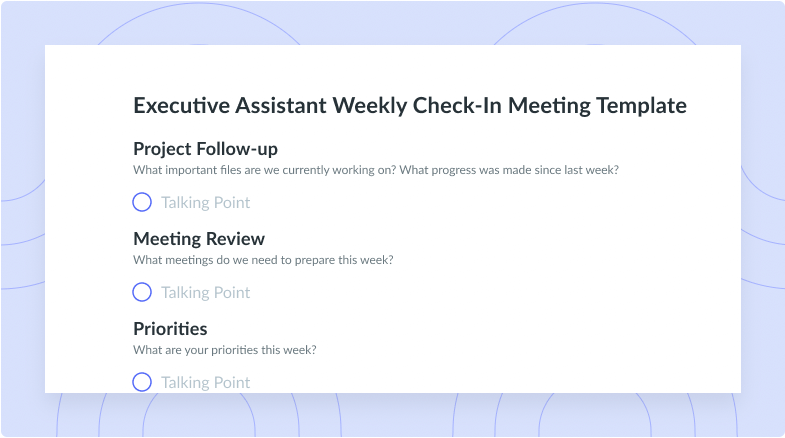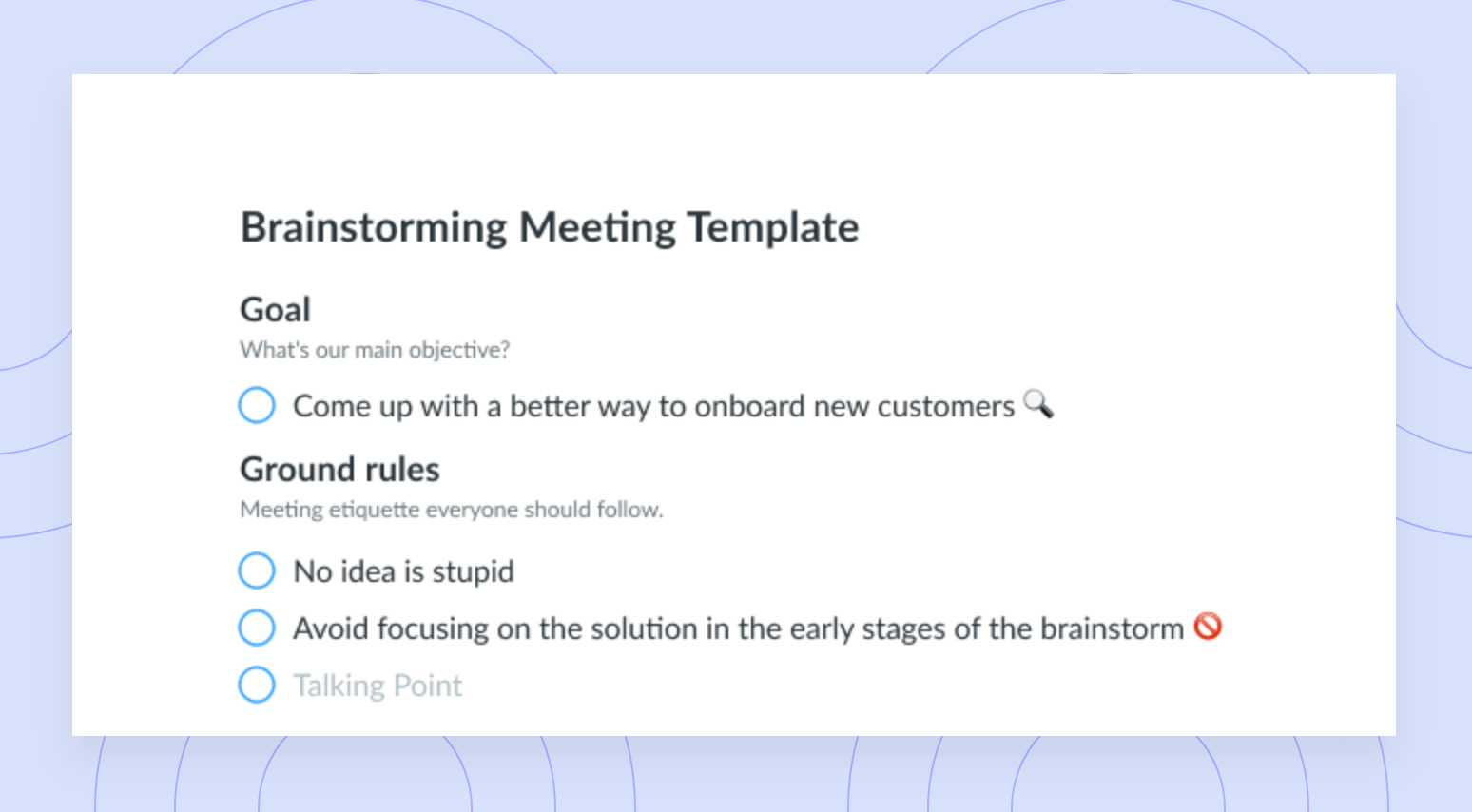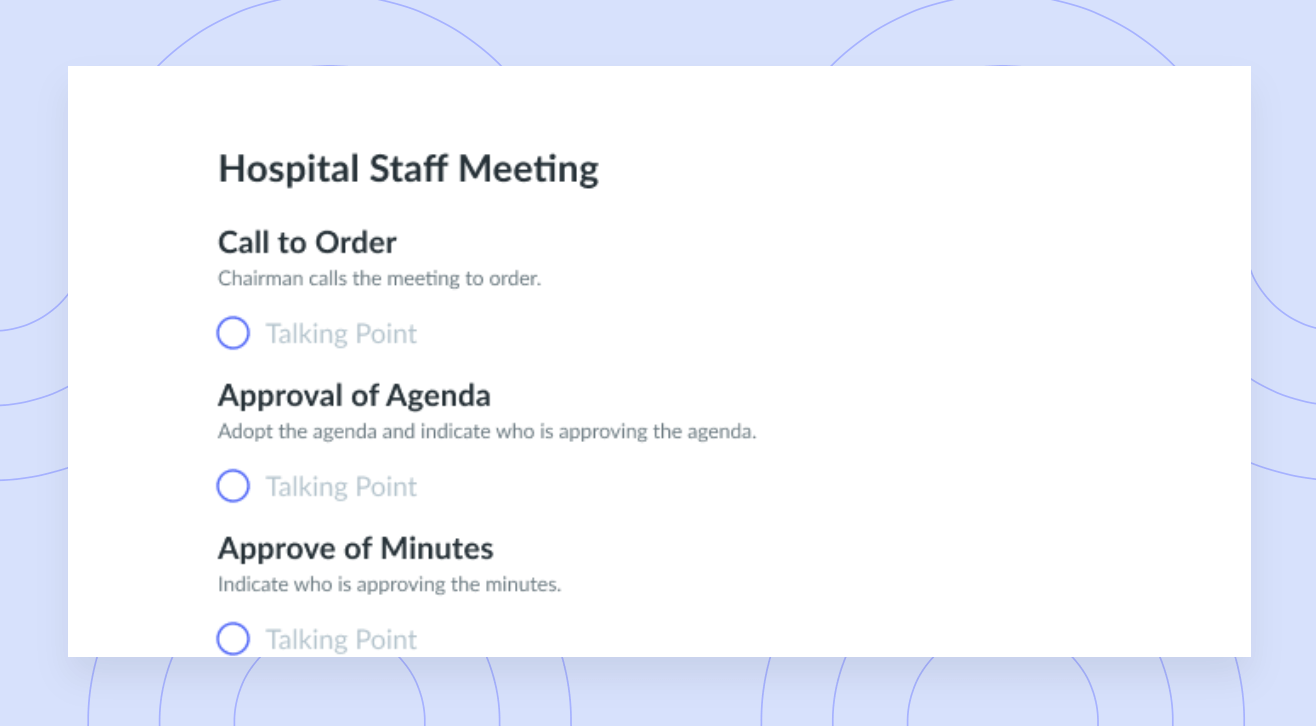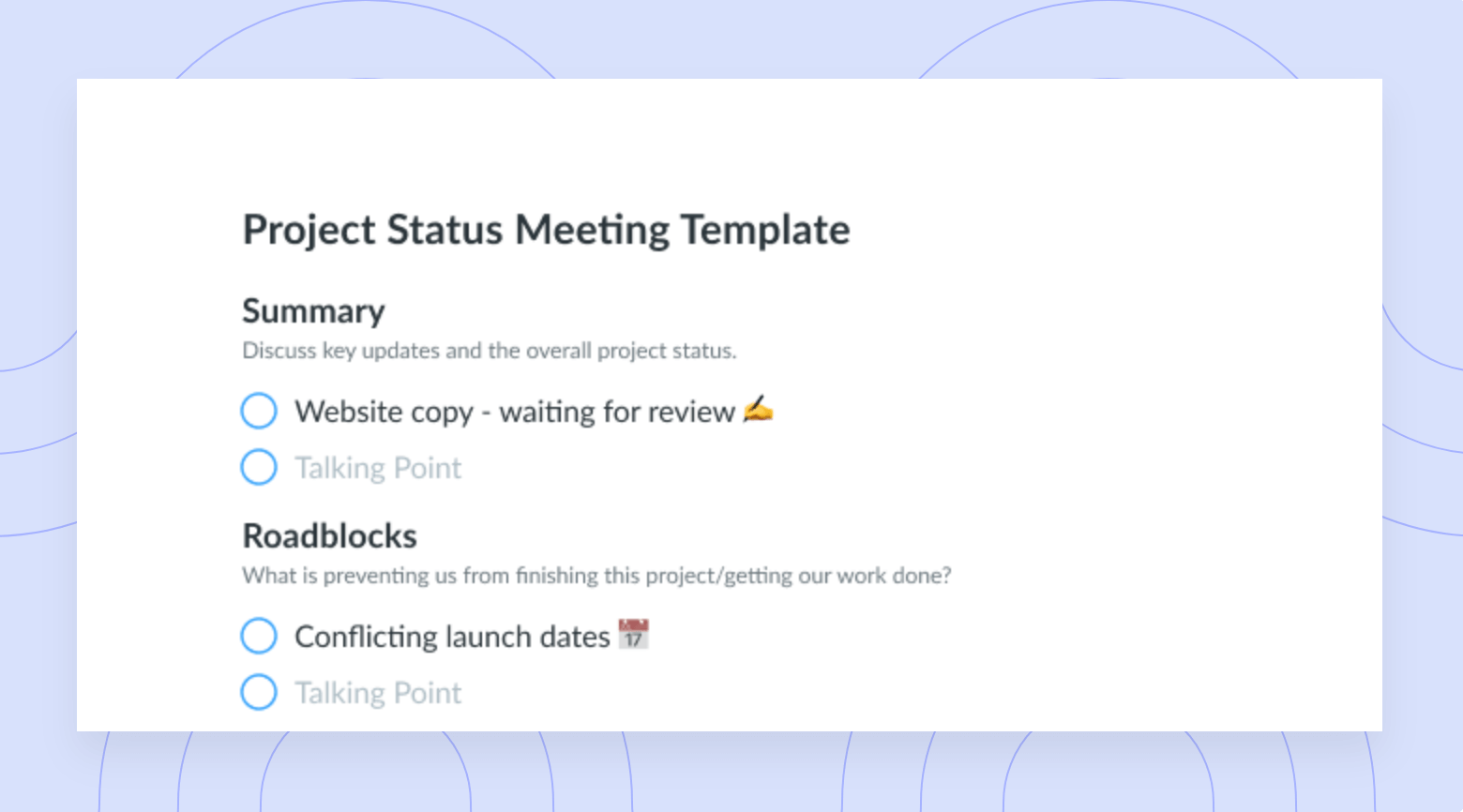
Project Check-In Meeting Template
Get this templateProject check-in meetings help teams provide updates on current projects and challenges, and uncover potential issues as they arise.


Project Check-In Meeting Template
A project check-in is precisely what it sounds like and consists of leadership or management checking in with a specific person or team about the status of an existing project.
Project check-in meetings can help confirm all progress on a company initiative or project and maintain the momentum of that project. While project check-in meetings are genuinely effective at keeping everyone on the same page, a manager check-in template can make the conference even more valuable by cutting down on time wasted due to lack of meeting preparation.
You can schedule your project check-in meetings for times that make sense for you and those engaged in the project, and the frequency will depend on the size and scope of the task in question. These meetings aim to exchange information concerning the project and should include all team members who are directly involved.
Project managers and their employees should be familiar with status meetings. Still, it’s important to note that these meetings can take place within any department, depending on where the bulk of the work unfolds. These meetings should discuss open tasks, track the budget, and gain insight into the project’s quality and whether the team is remaining on schedule.
How to Run an Effective Project Check-In Meeting
“Management is, above all, a practice where art, science, and craft meet.” – Henry Mintzberg
Overall, you’ll want to ensure that you keep these meetings quick but informative. Everyone attending the meeting likely has a deadline they must meet, and they’ll want to carry on with their work as soon as possible. Prepare yourself by utilizing a project meeting template so that you can dish out high-quality information in a short time.
Poorly developed agendas are the hypothetical death of project check-in meetings, leading to a lack of organization and an insufficient showing of leadership. Templates can prevent this from happening, as you’ll gather the information you need beforehand and focus on condensing it into knowledge bites that people can easily digest.
Project check-in meetings should focus heavily on the needs of the team, so try to make your point, ask your questions, and then open up the floor to let them touch on the talking points that are important to them. Let them tell you what they need to help the project move quickly while remaining high in quality.
What’s inside this Project Check-In Meeting Template:
Follow the sections on this project check-in template. You’ll be able to keep the attention of your attendees while allowing them to air grievances, work toward solutions, and still come away with the project information you need.
Ask members of the project team to populate the updates and roadblocks sections of the agenda before your meeting. This will ensure that everyone shows up prepared to have a productive conversation.
1 🎉Small Wins
It’s essential for any team working on a project to share their successes and small wins along the way, and it’s a fantastic way to kick off any project check-in meeting. Let the discussion lead into the project’s trajectory and how far it’s come since inception. Starting the session positively can help employees’ morale and keep team members engaged.
What is going well? Anything you have accomplished since our last check-in?
2 🚦Review Past Action Items
Now is the time to touch on past action items to ensure they’ve been completed or ask where they are in the completion process. Let team members talk about roadblocks or what might be holding them back, and then address those concerns accordingly.
Let’s review open action items from past check-in meetings. Discuss the progress on each.
3 📌 Updates
Open the discussion to project updates from those working on it directly and ask them what you can do to encourage progress. The project updates are essentially the entire point of the meeting, and you want to allow plenty of time here, so plan accordingly. Project updates should consist of the current quality of the project as well as the subsequent phases.
Discuss the overall status of the project and progress on individual objectives.
- How does everyone feel about the project so far?
- Are we on track to meet our deadlines?
4 ⛔ Puzzles
What is holding team members back in the project process? How can leadership help them move forward? Ask team members to present the puzzles keeping them from completing a particular project phase. Ensure that the input you get from team members is well-balanced.
Anything you are stumped on that I can help resolve? Do you need support from anyone on the team?
5 ❓Questions
“Get the right people. Then no matter what else you might do wrong after that, the people will save you. That’s what project management is all about.” ~ Tom DeMarco
Leave plenty of time to ask questions from every perspective on both ends. You can split this section into two and give employees time to ask questions, and then leadership can ask any questions that haven’t already been answered. Questions are crucial because you cannot gain the answers you need without asking the right questions. Prepare your question list from most important to least important, ensuring time to cover what matters most.
Any specific questions about the project?
6 Action Items
Past action items are in the past, so now it’s time to talk about the things that are currently open. Help team members devise a plan to meet any action item goals, working toward completion. It’s essential to ensure everyone knows what they’re working on as you advance, so don’t be afraid to go over it more than once.
Document the action items and next steps that came out of the project check-in, and (most importantly): who is directly responsible for each task.
Remember those project check-ins are an important part of making sure that projects come to completion! Use this template in Fellow to keep your team accountable and foster an environment of collaboration.











